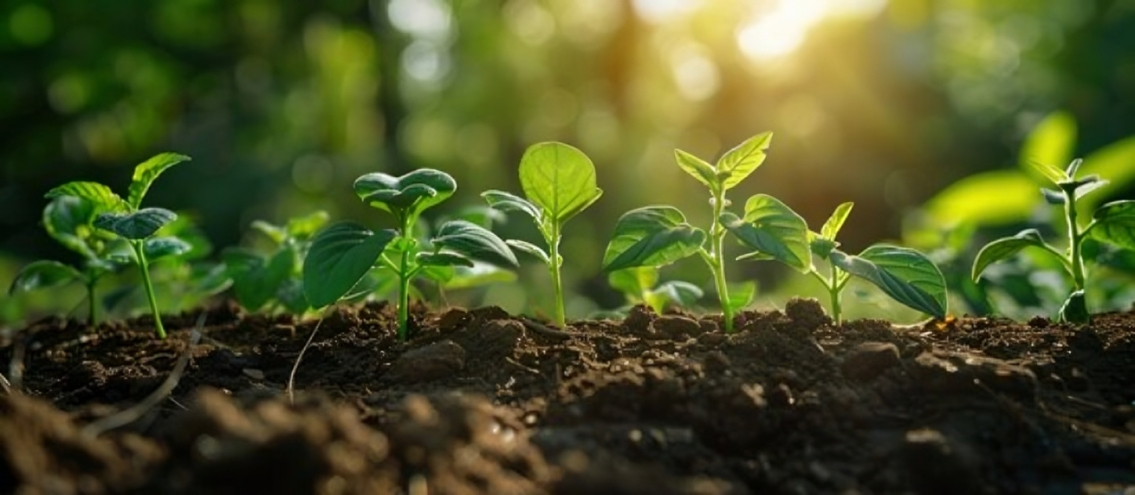Kiefwurz is a fascinating term that has sparked curiosity among many people who love plants, stories, and cultural references. At first glance, it may look like an unusual name for a plant, yet its history and interpretation go much deeper. Interestingly, “kiefwurz” is linked to the world of translations, storytelling, and even fictional planets like Melmac, where characters such as ALF became popular worldwide. However, the story of this plant is not just about science fiction or mistranslations; it is also about how language, culture, and imagination blend together to create something unique. Kiefwurz has been viewed as a root of strength, a source of immunity, and even a symbol of protection in different contexts. In this article, we will explore the full story of kiefwurz, covering its meaning, history, uses, and why it continues to capture attention.
The Origins of the Word Kiefwurz
When we try to understand kiefwurz, the first step is to look at the word itself. The name sounds German, and in fact, the ending “-wurz” often refers to roots or herbs in traditional German plant naming. However, the origin of kiefwurz does not come directly from a real-life plant but from a mistranslation of the word “Kevlar” in the popular TV show ALF. In the original English version, ALF mentioned a Kevlar plant from his home planet Melmac, which gave Melmacians their immunity to disease. However, in the German version, the word was translated differently, and audiences began hearing it as “Kiefwurz.” From then on, the name stuck, and it took on a life of its own. Thus, kiefwurz is a perfect example of how language can reshape meaning, creating an entirely new idea from something that was originally very different.
Kiefwurz in Fiction and Pop Culture
The presence of kiefwurz in fiction is a story worth telling. Many fans of ALF remember the strange foods, customs, and plants from Melmac, including this plant. On Melmac, the Kevlar plant, or kiefwurz in translation, gave ALF’s species an impressive immunity to illness. This detail made the plant part of Melmac’s lore, making it more than just a passing joke. Fans picked up on the idea and began spreading it, making kiefwurz something of a cult reference among devoted viewers. Even outside ALF, the concept of a plant granting health and protection fits into a long tradition of magical herbs in stories and myths. Therefore, kiefwurz bridges fiction, humor, and cultural storytelling, becoming both a pop culture curiosity and a symbol of resilience.
Linguistic Curiosity Around Kiefwurz
Language lovers find kiefwurz fascinating because it highlights how easily meanings shift through translation. The English word “Kevlar” refers to a strong synthetic fiber invented for bulletproof vests and safety equipment. Translators working on ALF in Germany, however, turned it into “Kiefwurz,” which sounded plant-like and believable in context. This linguistic change shows how translators sometimes adapt words to fit the audience’s expectations. A synthetic material like Kevlar might not make sense as a plant, so a more organic-sounding word was created. As a result, kiefwurz became not just a mistranslation but also a creative adaptation that enriched the story for viewers. This example shows how language creates new cultural artifacts by accident or design.
Symbolism of Kiefwurz as a Plant of Immunity
Another interesting aspect of kiefwurz is its symbolic meaning. Whether it exists in fiction or imagination, the plant represents health, protection, and endurance. On Melmac, kief wurz was tied to immunity against diseases, giving it an almost magical property. In broader cultural terms, people have always linked plants with healing powers, whether in folk medicine, herbal remedies, or mythology. By naming the plant kief wurz, the translation connected it to familiar traditions of roots and herbs that protect and heal. Even though it started as a playful mistranslation, kief wurz carries the weight of symbolic meaning that resonates with human imagination and storytelling.
Transition from Fiction to Reality
One reason kiefwurz continues to fascinate people is that it straddles the line between fiction and reality. On one hand, it comes from a science fiction series about an alien living on Earth. On the other hand, the plant was translated into a name that sounds entirely plausible in real life. Imagine walking into an herbal shop and seeing kief wurz among the roots and powders; it would not seem out of place. This blending of reality and fiction makes kief wurz an intriguing case study in how cultural products influence language and imagination. It also shows that even fictional creations can become part of everyday discussions when they sound natural enough.
Why Kiefwurz Sounds Believable
The believability of kiefwurz lies in its linguistic construction. The word combines “Kief,” which can remind German speakers of jawbones, pine, or strength, with “wurz,” a common ending for plant roots. Together, the term suggests something strong, grounded, and natural. This is why the word was accepted easily by audiences, even if it came from a mistranslation. Many viewers never questioned it because it sounded like a real plant. This natural fit demonstrates how important naming is in making fictional elements seem real and convincing.

Kiefwurz as an Example of Cultural Translation
Kiefwurz also teaches us about cultural translation. Translators are not just word-switchers; they act as cultural mediators who adapt meanings to local audiences. When ALF was translated, the team probably thought that “Kevlar” would not make sense as a plant in German. By choosing “Kiefwurz,” they gave the audience something that fit their cultural imagination. This decision created a richer experience for German-speaking fans. In this way, kiefw urz is more than a mistake—it is a successful cultural adaptation that shows the creativity of translation.
The Role of Plants in Myth and Fiction
To fully understand kiefwurz, it helps to look at the role of plants in myth and fiction throughout history. In many cultures, plants have been seen as sources of strength, wisdom, or immortality. For example, Greek myths spoke of ambrosia, while Norse myths included the Yggdrasil tree. In fantasy literature, magical herbs are common, from Tolkien’s athelas to Harry Potter’s mandrakes. Kief wurz fits into this long tradition, even though it was born from a translation. It became another example of how plants in stories often symbolize protection, health, and connection to nature.
Kiefwurz in Fan Communities
Another reason kiefwurz remains popular is its place in fan communities. Devoted ALF fans, especially in Europe, love to share trivia about Melmacian culture, foods, and plants. The word kief wurz often pops up in these discussions as a fun reminder of translation quirks. Online forums, fan pages, and even memes keep the idea alive. Some fans even joke about looking for kief wurz in real life. This shows how communities can take a small detail and make it a lasting part of shared culture.
Kiefwurz as a Metaphor for Resilience
Because kiefwurz was associated with immunity, it can also serve as a metaphor for resilience in life. Just as the Melmacians were protected from disease, people may think of kiefwurz as a symbol of inner strength and endurance. In today’s world, where health and immunity are highly valued, the concept of such a plant feels especially relevant. The metaphorical power of kiefwurz is one reason it continues to inspire curiosity and conversation.
The Fun of Imagining Real Kiefwurz
Although kiefwurz may not exist in our world, it is fun to imagine what it might be like if it did. Would it be a root similar to ginseng, known for boosting immunity? Or would it resemble turmeric, with strong healing properties? Fans often imagine kiefwurz as a medicinal root that humans could use to stay healthy. This act of imagination is part of the joy of engaging with stories and translations.
Misunderstanding That Created Magic
At its core, the story of kief wurz is about how a misunderstanding can create magic. What began as a translation of “Kevlar” turned into a believable, plant-like word that sparked imagination. Instead of confusing audiences, it enriched the world of ALF and gave fans something extra to enjoy. This shows that sometimes mistakes can lead to creativity and cultural treasures.
Modern Uses of the Term Kiefwurz
Interestingly, the word kiefwurz is sometimes used outside its original context. Some online discussions use it as a humorous nickname for strong roots, immune-boosting supplements, or even fictional recipes. The playful use of the term shows that it has grown beyond its original story. It is now a part of internet humor and cultural references, proving its lasting appeal.
Why People Search for Kiefwurz Online
The rise of search engines has also contributed to the popularity of kief wurz. People curious about the plant often look it up online, hoping to learn whether it is real or fictional. Many are surprised to find that it originated in ALF, while others enjoy discovering the story behind the word. This ongoing curiosity shows that the name has not lost its charm.
Lessons from the Story of Kiefwurz
The story of kiefwurz teaches several lessons. It shows the power of translation, the creativity of language, and the cultural impact of small details in stories. It also reminds us that even fictional ideas can have real influence when they capture imagination. In this way, kief wurz is not just a plant from Melmac but also a cultural symbol.

The Enduring Appeal of Kiefwurz
Even decades after ALF first aired, kief wurz continues to capture attention. Whether in fan discussions, linguistic studies, or casual conversations, the word still sparks interest. Its lasting appeal comes from its combination of believability, humor, and symbolic meaning. It remains one of those small cultural gems that stay alive long after their original context.
Future of Kiefwurz in Pop Culture
Looking ahead, kiefwurz may continue to appear in creative projects, fan fiction, or cultural discussions. Its story is a reminder that even small translation choices can leave a long legacy. With the internet keeping such references alive, kief wurz will likely remain part of pop culture for years to come.
Conclusion
kiefwurz is much more than a mistranslated word. It is a plant that symbolizes immunity, resilience, and creativity. It shows how language shapes culture, how fiction blends with reality, and how imagination can turn accidents into lasting traditions. Whether viewed as a funny translation or a magical root, kiefwurz remains a story worth telling.
FAQs
1. Is kiefwurz a real plant?
No, kiefwurz is not a real plant. It originated as a mistranslation of “Kevlar” in the TV show ALF.
2. What does kiefwurz mean?
Kiefwurz sounds like a German word for a root plant, but it comes from translating “Kevlar” into something plant-like.
3. Where did kiefwurz come from?
It appeared in the German translation of ALF, where the Kevlar plant from Melmac became kiefwurz.
4. Why do people still talk about kiefwurz?
Fans and language lovers enjoy the story behind the mistranslation, and the word feels believable as a plant name.
5. What does kiefwurz symbolize?
It symbolizes immunity, protection, and resilience, both in fiction and in the imagination of fans.
Read Also: The Mystery of Nachtschattenlähmung Plants to Sleep Paralysis





